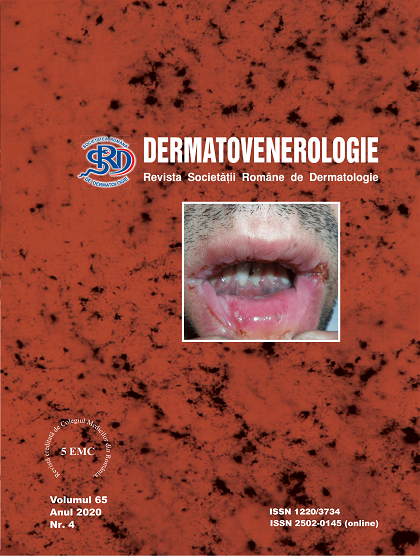Summary
Pemphigus vulgaris (PV) is a potentially fatal, autoimmune disease, with intraepithelial localization, characterized clinically by flaccid blisters and erosions of the skin and mucous membranes, and histologically by acantholysis. The main goal in the treatment of PV is to control the disease, prevent relapses and avoid side effects associated with prolonged use of systemic corticosteroids (SC) and immunosuppressive agents [1]. To date, SC remain the gold standard and the first therapeutic option in PV, and their association with immunosuppressive agents allows to obtain a better therapeutic effect, also reducing dependence on SC [2]. We report and discuss the case of a female patient aged 42 years with the diagnosis of Pemphigus vulgaris since 2018, confirmed pathologically, under specialized therapy with Medrol 8 mg/day, medication associated with corticotherapy and Imuran (Azathioprine) 150 mg/day, who comes for clinical and biological re-evaluation and specialized therapeutic conduct in the context of persistent bullous eruption.


